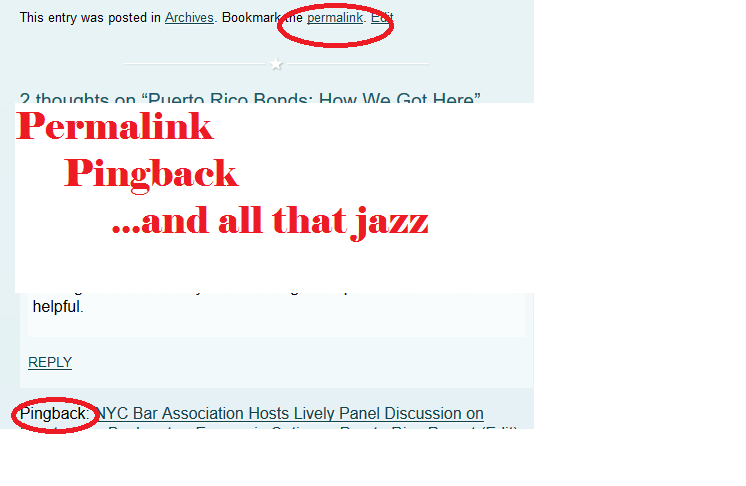Your cart is currently empty!

Snotty Smarty-pants Cyber-speak
The following comment showed up on a client site:
On this page, I see the words “permalink” and “pingback.” What in heaven’s name are those terms supposed to mean? Seriously! Please communicate with us in English — not via some sort of snotty, smarty-pants, “cyber-speak” ! ! !
The client contacted us to find out what those words — permalink and pingback — mean. We answered.
In case the terms are not meaningful to you, here’s a quick definition:
- A permalink is a permanent link, as distinct from temporary links to pages which might contain dynamic content. The page invites the reader to “Bookmark the permalink” so they can find the post again, even if they encountered it on a page where it doesn’t really live.
- A pingback is a notification of another website that has linked to the post you’re reading. It allows you to find further discussions of the post you’re reading, and so to continue exploring the topic.
Later, I saw the comment as I was working on the website. I took a moment to adjust to the idea that words like “permalink” and “pingback,” both of which are in my normal daily English vocabulary, are snotty and smarty-pants. I contemplated the possibility of using some other word in each case. I even checked a couple of online thesauri for synonyms and found “linkback” but nothing else. These online tools might be smarty-pants cyber-speakers, though.
This is not just a funny story, although I have to admit that I find it pretty funny. You need to decide whether your web audience will be composed of people who will value the permalink and pingback, or of people who will find them offensive.
We don’t always use the permalink and pingback notices on websites. We rarely use the “You may use these HTML tags in your comments” announcements which you often see at WordPress sites because we discovered that they were not useful to the visitors of most of the websites we build.
The issue is akin to the problem of jargon. Every field has its own special words and special ways of using words that help us talk with one another more efficiently. Marine biologists talk about “fishes” and fashionistas talk about “a pant” and the rest of us find that a little weird. It’s important to take this into account when you write a website for your business — you must be sure you’re writing for your customers, clients, or patients, not for your colleagues.
But a word like “pingback” is not the specific jargon of the field in which the site owner works. It’s a new word developed for users of the internet. It’s the same kind of word as “Like” and “Tweet” and “Pin” and “Search” — words that you probably have at your website, too.
We believe that many of the visitors at the website in question appreciate the permalink and pingback features, so we’re not changing it. But it’s worth a decision. If there are features at your website that you’ve kept just because they came with your theme, consider your audience and decide whether they improve your particular’s visitor’s experience or not.
by
Tags:

Leave a Reply